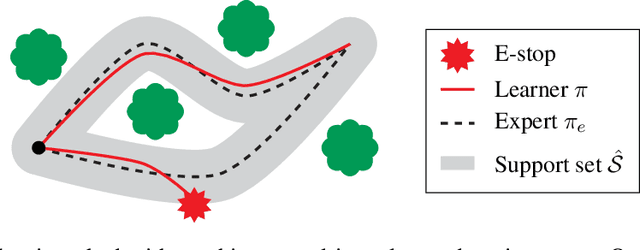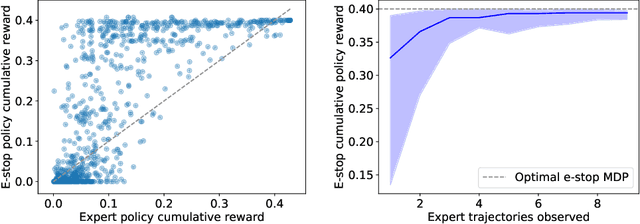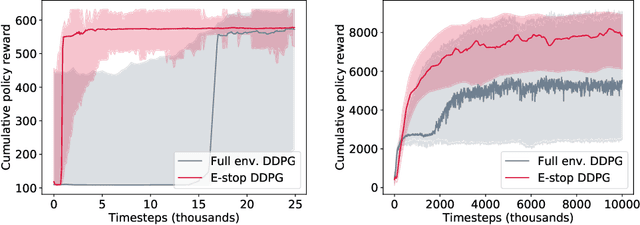Mo' States Mo' Problems: Emergency Stop Mechanisms from Observation
Paper and Code
Dec 03, 2019



In many environments, only a relatively small subset of the complete state space is necessary in order to accomplish a given task. We develop a simple technique using emergency stops (e-stops) to exploit this phenomenon. Using e-stops significantly improves sample complexity by reducing the amount of required exploration, while retaining a performance bound that efficiently trades off the rate of convergence with a small asymptotic sub-optimality gap. We analyze the regret behavior of e-stops and present empirical results in discrete and continuous settings demonstrating that our reset mechanism can provide order-of-magnitude speedups on top of existing reinforcement learning methods.
* NeurIPS 2019
 Add to Chrome
Add to Chrome Add to Firefox
Add to Firefox Add to Edge
Add to Edge